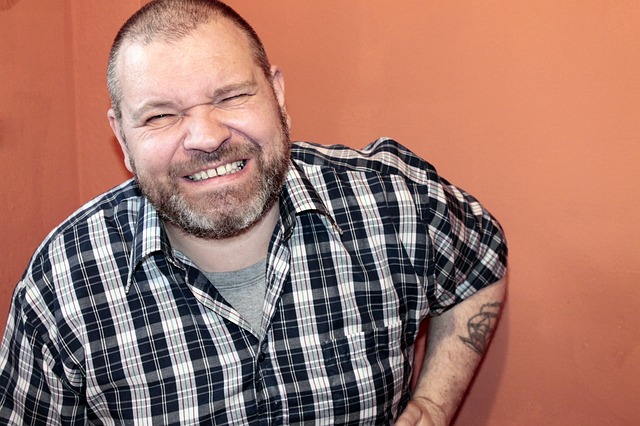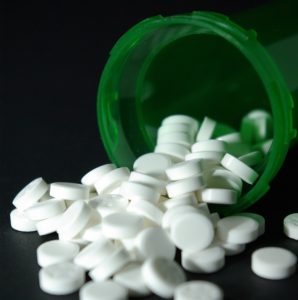
Contributed by Staff of Timberline Knolls
Today, the United States is in the grip of one of the worst drug epidemics ever experienced in our country. The drug in question is Oxycontin; the addicted population is…everyone. Fortunately, Suboxone can help with reversing overdoses.
Because Oxycontin is a legitimate, legal pharmaceutical drug, it is therefore prescribed to patients across-the-board - the middle-aged man who just underwent back surgery; the young mother who struggles with severe headaches; or the high school student who broke her leg during cheer-leading practice. And then there are the untold numbers of people who purchase Oxycontin on the street just to get high.
Understanding the Addictive Nature of Oxycontin
 Oxycontin is an opiate. It is extremely effective in reducing pain. It is also highly addictive. If used regularly, physical dependency will result. This is because the structure of the brain literally changes after ongoing exposure to this drug.
Oxycontin is an opiate. It is extremely effective in reducing pain. It is also highly addictive. If used regularly, physical dependency will result. This is because the structure of the brain literally changes after ongoing exposure to this drug.
As an opiate is ingested over time, the brain attempts to protect itself and restore stability by reducing the number of available opiate receptors. This means an individual must take more and more of the drug to get the same effects. Additionally, if the drug is discontinued, withdrawal symptoms will manifest. Due to the severity of these symptoms, oxycontin addiction is very difficult to break.
If ever the expression “fight fire with fire” applied to detox and recovery, it is now. The truth is, going cold turkey with an opiate is essentially a set up to fail. The influence of the drug on the person’s mind, body, and soul is just too intense. Many treatment programs utilize Buprenorphine, which is the primary ingredient in Suboxone, to help individuals break the addiction and enter recovery.
Abuse Potential of Suboxone
Suboxone was approved by the Food and Drug Administration in 2002 for the treatment of opioid dependence. This medication can suppress cravings and relieve the excruciating withdrawal symptoms that often lead to relapse. Suboxone comes in tablet and sublingual film; the latter form dissolves upon insertion under the tongue. It is taken daily.
This drug does have abuse potential, therefore, it must be carefully prescribed and monitored. When this medication is used appropriately, it can provide the fighting chance that many people need to overcome addiction. However, as with many pharmaceutical drugs, it can lead to abuse and addiction.
What Are Signs of Abuse?
Signs of abuse include:
- Nausea

- Vomiting
- Muscle pain and cramps
- Watery eyes
- Diarrhea
- Fever
- insomnia
- Sweating
- Depression
- Drowsiness
- Slurred speech
- Increased blood pressure
- Poor memory
- Small pupils
- Apathetic mood
Abuse can come in the form of ingesting too much of the drug, but typically an individual will take suboxone in tandem with alcohol or another drug to improve the high. This is extremely dangerous. Because it is an opiate, overuse of Suboxone results in respiratory suppression.
If an individual takes Suboxone with benzodiazepines, which is often the case, respiration can be suppressed to dangerously low levels. Coma and death are not uncommon.
Additional signs of Suboxone abuse include:
- Strange behavior
- Requiring refills before the designated time
- Disturbed family relationships
- Delivery of random packages at home or work
Suboxone exists for one reason: to help those addicted to opiates get clean and move into recovery. Misusing this drug, especially with alcohol or other drugs, is a recipe for genuine disaster. Today, far too many people throughout the United States are overdosing and dying.
If you or someone you know has a severe addiction, please get help.
Thank you to Timberline Knolls for providing this article.
Timberline Knolls is a leading residential treatment center for women and adolescent girls, ages 12 and older, with eating disorders, substance abuse, trauma, mood and co-occurring disorders. Located in suburban Chicago, residents receive excellent clinical care from a highly trained professional staff on a picturesque 43-acre wooded campus. An adult partial hospitalization program (PHP) is also available in nearby Orland Park, Ill., for women to step down or direct admit. For more information on Timberline Knolls Residential Treatment Center, call 630-755-5173. We are also on Facebook – Timberline Knolls, LinkedIn – Timberline Knolls and Twitter – @TimberlineToday.
The opinions and views of our guest contributors are shared to provide a broad perspective of addictions. These are not necessarily the views of Addiction Hope, but an effort to offer a discussion of various issues by different concerned individuals.
We at Addiction Hope understand that addictions result from multiple physical, emotional, environmental, and genetic factors. If you or a loved one are suffering from an addiction, please know that there is hope for you, and seek immediate professional help.
Published on October 10, 2016
Reviewed and Updated by Jacquelyn Ekern, MS, LPC on January 12, 2021
Published on AddictionHope.com
